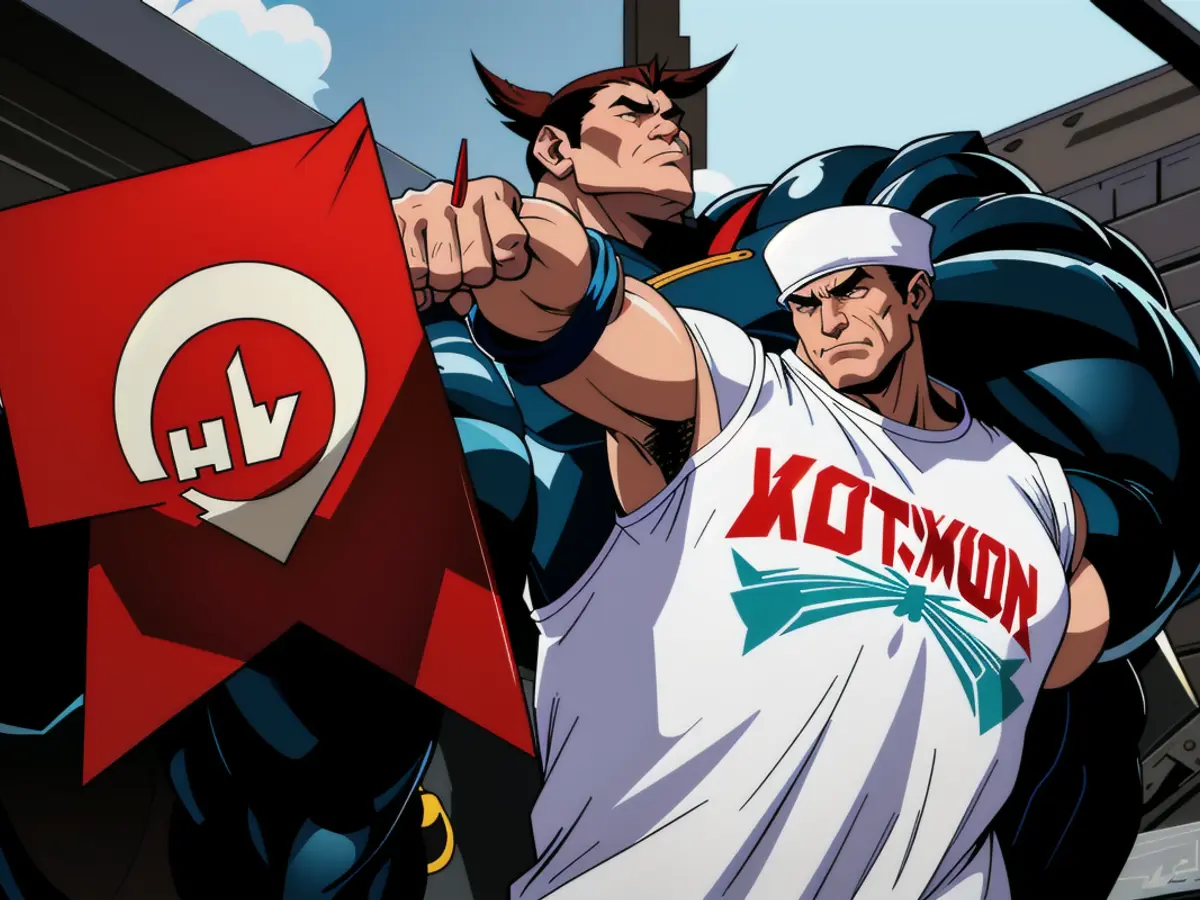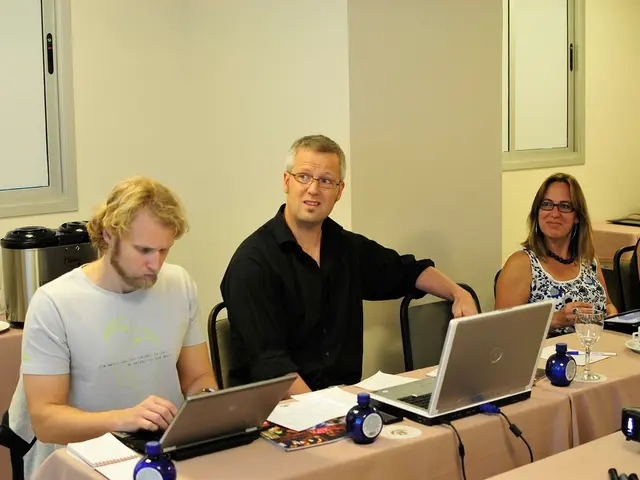Turmoil in Turkey: Imamoglu's Detention and Suspension as Istanbul Mayor
Opponent of Erdoğan, Imamğolu, detained and temporarily stripped of mayoral duties - Rival of Erdogan, Imamgül, detained and stripped of mayoral duties
On a chilly Sunday morning, the Istanbul Caglayan Court slapped Imamoglu with a detention order, suspending him from his role as mayor on allegations of corruption. Although the judges dismissed the prosecution's plea for detention on "terrorism" charges, other close confidants, including one of his top advisors, were also taken into custody.
Later in the day, Imamoglu, a 53-year-old political powerhouse, was transported to Silivri prison in Istanbul. Notable personalities, such as German journalist Deniz Yücel, had previously stayed behind those very prison bars between 2017 and 2018. One of Imamoglu's advocates confirmed that a legal appeal would be lodged against his incarceration.
In a swift move just hours after the detention was announced, the Ministry of the Interior stripped Imamoglu of his duties, declaring a suspension from office. Meeting this development with indignation, the opposition party labeled it as "political coup," urging citizens to persist in their resistance. Imamoglu himself stood tall, expressing through his attorneys via the X platform, "I remain unbowed, and all will be well."
This latest turn of events brings back memories of 2019, when Imamoglu's triumphant election as mayor was initially annulled before he eventually won the re-run with a resounding majority.
Over the previous weekend, Imamoglu, whose arrest occurred earlier in the week, endured lengthy grillings at the Istanbul Caglayan Justice Palace by the prosecution. This was made possible by a visit from CHP leader Ozgur Ozel and Imamoglu's wife, who saw their detainee for five minutes post-interrogation. According to Ozel, Imamoglu was in high spirits, attributing the ongoing saga to a "great awakening" in Turkey.
Germany, yet again, delivered a scathing critique of the Turkish judiciary's treatment of Imamoglu, dubbing it a "serious setback for democracy in Turkey." In a pointed comment, the Union faction's foreign policy spokesperson for the Bundestag, Jurgen Hardt, identified this move as another step by Erdogan towards autocracy.
In response, citizens across Turkey took to the streets on Saturday and Sunday, sustaining massive protests in Istanbul, Ankara, and Izmir. Police deployed rubber bullets, pepper spray, and stun grenades against protesters, with hundreds arrested, although official figures remain unavailable as of yet. A few brave spirits even sought shelter within city hall buildings, spending the night in makeshift quarters, awaiting updates on Imamoglu's interrogation progress.
Curiously, the CHP's primary election for the presidential candidacy began on Sunday, extending well into the evening due to fervent turnout. Encouraging participation from both party members and the general public, Imamoglu's wife, Dilek Kaya Imamoglu, urged citizens via the X platform to cast their votes in support of "democracy, justice, and the future."
- Ekrem Imamoglu
- Recep Tayyip Erdogan
- Istanbul
- Sunday
- Arrest
- Ministry of Interior
- Prosecutor's Office
- Detention
- Leader
- Police
- Wife
- Weekend
- Turkey
- Mass protest
- Democracy
- Corruption
- Terrorism
- Silivri
- Deniz Yücel
- News
In the current political milieu of Turkey, Imamoglu's detention and suspension as mayor represent a significant escalation of authoritarian tendencies. Key aspects and implications to consider include:
Political Context and Consequences
- Political Manoeuvering: Imamoglu's detention and removal from office is perceived as a tactical ploy by President Erdogan to neutralize potential opposition leaders ahead of the 2028 presidential elections.
- Shattering of Democratic Norms: This incident signifies the further erosion of democratic processes in Turkey. The judiciary's role in invalidating Imamoglu underscores the abuse of legal tools to crush dissent and opposition.
- Influence on International Relations: Erdogan's actions are facilitated by a favorable global environment, with his strategic position and Turkey's crucial role in international affairs hampering the application of significant pressure from Western powers.
Social and Public Reaction
- Public Outcry: Imamoglu's imprisonment has incited widespread protests throughout Turkey, uniting various segments of society. Although these demonstrations do not pose an immediate risk to Erdogan's rule, they represent hopeful signals of dissent.
- Public Perception: Imamoglu's detention has galvanized opposition sentiment, with many regarding it symbolic of the broader suppression of democratic freedoms.
- Unitybuilding Potential: Imamoglu's image could serve as a rallying cry for opposing groups, further consolidating unity against Erdogan's regime.
Future Expected Developments
- Autocratic Consolidation: The Erdogan administration is likely to persist with consolidating power, possibly intensifying crackdowns on dissenting voices and opposition figures. Turkey's slide into autocracy might accelerate further as a result.
- Election Prospects: Imamoglu's absence from the scene poses significant challenges for the opposition in mounting a credible challenge to Erdogan in the next presidential elections.
- Ekrem Imamoglu's arrest and suspension as mayor in Istanbul, Turkey, has intensified concerns about the country's democratic principles, as his detention follows allegations of corruption and terrorism charges, while his rivals view this move as a political coup.
- The mass protests held in cities like Istanbul, Ankara, and Izmir by thousands of citizens, following the arrests of Imamoglu and other journalists, indicate a growing resentment towards the government's autocratic tendencies and suppressive measures.
- The arrest and subsequent suspension of Imamoglu, a prominent political figure, may initiate a series of autocratic consolidations within the Erdogan administration, leading to increased suppression of dissenting voices and opposition figures, potentially hampering the opposition's prospects in the upcoming presidential elections.








